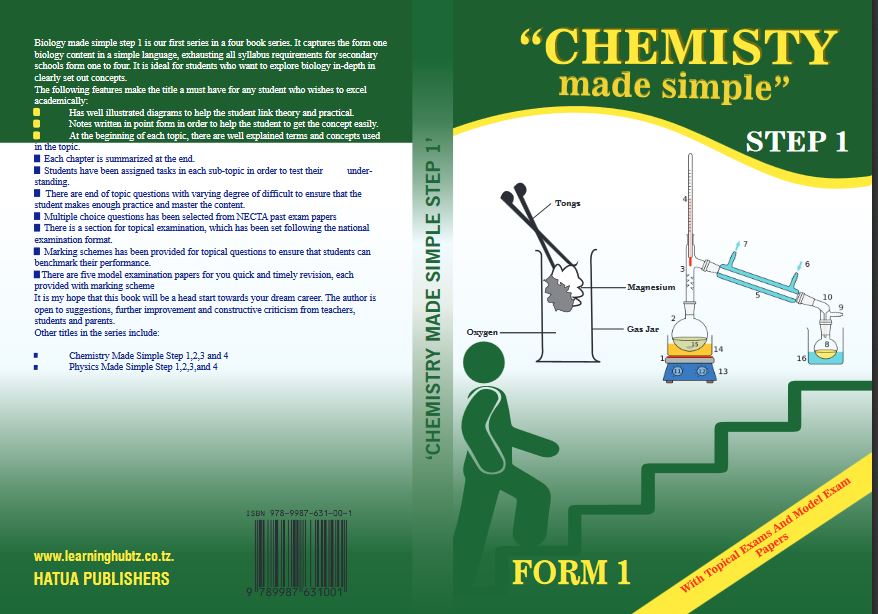Student's Assessment Number..............
THE UNITED REPUBLIC OF TANZANIA NATIONAL EXAMINATIONS COUNCIL OF TANZANIA FORM TWO NATIONAL ASSESSMENT
022 ENGLISH LANGUAGE
Time: 2:30 Hours Year: 2021
Instructions
1. This paper consists of sections A, B, C and D with a total of ten (10) questions.
2. Answer all questions.
3. Section A, B and D carry twenty (20) marks each and section C carries forty (40) marks.
4. All writings must be in black or blue ink.
5. All communication devices and any unauthorised materials are not allowed in the assessment room.
6.Write your Assessment Number at the top right corner of every page.
| FOR ASSESSOR'S USE ONLY | ||
| QUESTION NUMBER | SCORE | ASSESSOR'S |
| 1 | ||
| 2 | ||
| 3 | ||
| 4 | ||
| 5 | ||
| 6 | ||
| 7 | ||
| 8 | ||
| 9 | ||
| 10 | ||
| TOTAL | ||
| CHECKER'S INITIALS | ||
SECTION A (20 Marks)
COMPREHENSION AND SUMMARY
1. Read the, following passage carefully and answer the questions that follow.
Our mother used to tell us different stories during evening time, especially after the dinner time. She was a good narrator; she used to narrate many stories.
I remember one thing mother taught us, the time she would be narrating the stories. She put emphasis on giving to the poor.
She used to say; "Giving to the poor can make up for sin, just as water can put out the blazing fire. Anyone who is responding to others with acts of kindness is thinking of the future, because he will find help if he ever falls on hard times." She would say my son, don't prevent the poor from making a living or keeping them waiting in their needs. Never give a hungry person a reason to feel isolated. Don't add trouble to someone who is already in trouble. If he is in need, don't put off giving to him; don't refuse to help the beggar who is in distress. Don't turn your back on a poor person or give him any reason to curse you. Make yourself popular in the community. Bow your head to the men of authority. Listen to what the poor have to say and answer them politely. Protect the poor people from those who want to hurt them and be firm in your judgements. Be like a father to orphans who provide for them with help since their parents can no longer provide for them. Then you will feel proud of helping people who are in need of help.
For the people you help will never forget what you do for them even when you are not around. Everyone will take you as a friend because you are always there when they need you. Then you will live the proverb "A friend in need is a friend indeed" which justifies your true colour.
After the story, I thought of starting doing good things to the people who need our help. I knew that some people need bread while others throw it away, other people need water while others have their tanks full of water in their houses but they don't get a chance to help those who are missing, because they either don't meet each other or they don't know anything about poor people. It is my wish to be an example in my community.
Questions
(a) Answer the following questions with reference to the passage in the blank spaces provided.
(i) Why was the mother narrating stories to her son?
View Ans(ii) What does the expression "Giving to the poor can make up for sin, just as water can put out blazing fire" mean?
View Ans(iii) According to the passage, what should you do when someone is in trouble?
View Ans(iv) What does the expression "Bow your head to the men of authority" mean?
View Ans(v) Briefly, explain one reason for the presence of the poor people in society.
View Ans(b) For each of the following statements, write TRUE if the statement is correct or FALSE if the statement is not correct in the blank spaces provided.
- A narrator usually narrated the stories in the evening . . . . . . . . . . . . . . . . . .
- Helping the poor people with an opportunity to work will make them independent . . . . . . . . . . . . . . . . . .
- Anyone that responds to others with acts of kindness does not think of the future . . . . . . . . . . . . . . . . . .
- "A friend in need is a friend in deed" means that, friends should be around for each other only in happy occasions . . . . . . . . . . . . . . . . . .
- People should respect each other for who they are and not what they have . . . . . . . . . . . . . . . . . .
2.Read Juma's daily timetable, then complete the passage that follows:
Time | Activity |
| 6.00- 6.30 | Wake up, preparation, breakfast |
| 6.30- 7.00 | On foot to school |
| 7.00- 7.30 | Sweeping, dust off on tables etc. |
| 7.30- 8.00 | Parade, announcements, inspection |
| 8.00- 10.30 | In classroom |
Juma (i) . . . . . . . . . . . . . . . . . . . . . at (ii) . . . . . . . . . . . . . . . . . . . . . and prepares himself before going to school. His journey to school starts at (iii) . . . . . . . . . . . . . . . . . . . . . and it takes him about half an hour. At (iv) . . . . . . . . . . . . . . . . . . . . . he joins other pupils for cleanliness in and outside the classrooms. He and other pupils assemble for parade, (v) . . . . . . . . . . . . . . . . . . . . . and inspection take place from half past seven to eight o'clock. He then goes to his classroom for morning session.
View AnsSECTION B (20 Marks)
LANGUAGE USE
3. Match the expressions about Wedding in List A with their meanings in List B by writing the letter of the correct answer below the corresponding item number in the table provided. Item (vi) has been used as an example.
| List A | List B |
| (i) A man on his wedding day. (ii) A person or company that provides food and drinks at a wedding.(iii) A woman on her wedding day. (iv) A formal social occasion to celebrate a wedding ceremony. (v) A gown that a woman wears at her wedding.(vi) A woman who is engaged to be married to a man. |
|
Answers
| List A | (i) | (ii) | (iii) | (iv) | (v) | (vi) |
| List B | F |
4. Arrange the following sentences into a logical sequence to make a meaningful paragraph. Sentence number 6 has been done as an example.
- Then, she came out of the house shouting at the naughty boy.
- A little boy was playing with his ball in the street.
- The boy was so frightened that he ran away.
- The woman was shocked by the sound of the broken window.
- He kicked it hard and broke the window of Mrs. Mawazo's house.
- A few minutes later, he came back to the house to apologize. Answers
| 1st | 2nd | 3rd | 4th | 5th | 6th |
| F |
5. Imagine that your family is inviting relatives and friends to a birthday party of your sister, Anjilili that is expected to be held at Serena Hotel in Dar es Salaam. Write a formal invitation card using the following guidelines:
- Family name: Mr. and Mrs. Biziku.
- Purpose of invitation: Birthday party of their daughter, Anjilili.
- Place: Dar es Salaam, Serena Hotel.
- Date: 20th November, 2021.Time: 6.00 p.m. - 9.00 p.m.
- Contact: (only for those who will not attend) Mrs. Biziku Fulumo, Mob, 0797 090 7789.
SECTION C (40 Marks)
PATTERNS AND VOCABULARY
6. Study the following pairs of the words and in each write a word that comes first in the dictionary-
- Mother/Matter..............................
- Elephant/Element .............................
- Balance/Ballard .............................
- Pass/Purse..............................
- Come/Calm..............................
7. (a) Complete the following sentences using the words given in the box by writing it in the blank spaces provided.
| pedestrians, zebra crossing, held, tributary, confirmed, roundabout, Ocean |
(i) Mwakipesile ...................... that Dodoma is in the southern part of Singida from the map of Tanzania.
(ii) The villagers crossed the road at the .......................
(iii) Hamisa did not want to lose her new book to the thief, so she . . . . . . . . . . . . . it tightly.
(iv) On rainy days,.........................carry umbrellas.
(v) Although Lwangu River is big, it is a ...................... of Rufiji River.
View Ans(b) Re-write the following sentences according to the instructions given in brackets in the blank spaces provided.
- Daudi likes writing stories (use 'enjoy')
- The teacher dislikes punishing the students (use 'hate').
- They are very lazy, they hate working (use 'dislike').
- Ngailo enjoys watching football (use 'like')
- Musa prefers beans to meat (use 'likes')
8. (a) Complete the following sentences with the correct form of the verb in the brackets by writing it in the blank spaces provided.
- Do you enjoy.............(dance)?
- John is ...............(rinse) his clothes at present.
- I am (go) home now.
- The students are.................(read) novels at the moment.
- My brother and I are ..............(play) tennis this time.
(b) Answer the following questions by choosing the correct words or phrases given in the box and write it in the blank spaces provided.
| sister-in-law, daughter, cousin, nephew, grandparent, great grandfather, brother-in-law |
- Who is my brother's son to me?.................................
- Who is my aunt's daughter to me?...............................
- Who is my sister's husband to me?...............................
- Who is my brother's wife to me?................................
- Who is my grandfather's father to me?............................
SECTION D (20 Marks)
READING PROGRAMME
9. Choose one class reader you have read either in Form One or Two, then answer the following questions:
| The Magic Garden | - K.R. Cripwell (1977), William Collins Sons and Company Ltd, Great Britain. |
| Kalulu the Hare | -F. Worthington (1937), Longman, England. |
| Hawa the Bus Driver | - R.S. Mabala (1988), Ben & Company, Dar es Salaam. |
| Fast Money | -K.R. Cripwell (1978), William Collins Sons and Company Ltd, Great Britain. |
| Mabala the Farmer | - R.S. Mabala (1988), Ben & Company, Dar es Salaam. |
- Describe one female character that has been portrayed as a hard worker.
- Identify one male character and show how he relates to the todays' society.
- What is the story about?
- Which character do you like the most? Give a reason for your answer.
- What message does the book have to the society?
10.Read the following poem and then answer the questions that follow.
I have known this preacher man
For a long time he was a good man
I have known this judge
For a long time he was a good man
I have known this teacher
For a long time he was a good man too.
Because of drugs
They have been taking secretly
They are in worry houses today
We cannot stand aside and look
While the nation is going down the drain
We really cannot stand aside and look
While the nation is going down the drain.
I am telling you now
Cocaine no good for you
Liquor no good for you
You go sniffling them glue N
No good for you
They give it to you and say
It is the sense of knowledge.
Questions
(a) (i) Who are the three people that are being spoken about in the first stanza?
(ii) Identify the outcome of having those people in the society as victims of the situation portrayed in the poem.
View Ans(b) (i) How many verses are there in the third stanza?
(ii) How many stanzas are there in the poem?
View Ans(c) According to the poet, what are the two things that are not good for people? Give a reason for your answer.
View Ans(d) What is your suggestion to the audience of the poem?
View Ans(e) Through which way can the government eliminate the causes of what has been said to be bad in the poem?
View AnsANSWER

Hub App
 For Call,Sms&WhatsApp: 255769929722 / 255754805256
For Call,Sms&WhatsApp: 255769929722 / 255754805256
 For Call,Sms&WhatsApp: 255769929722 / 255754805256
For Call,Sms&WhatsApp: 255769929722 / 255754805256
WHATSAPP US NOW FOR ANY QUERY
App Ya Learning Hub Tanzania





